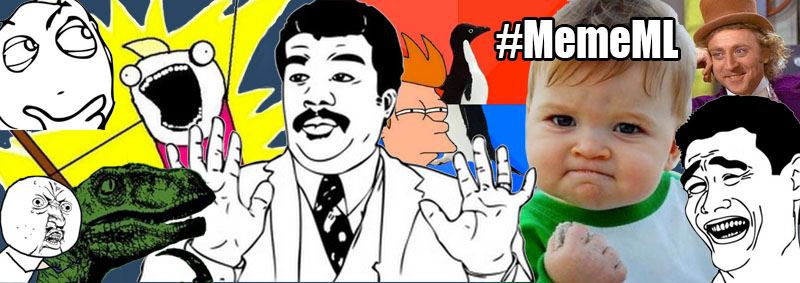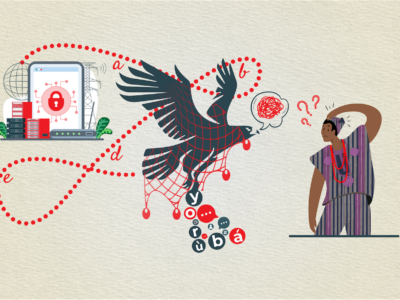RV Newsletter: Looking back at the diversity of mother language memes

Rising Voices note: Our biweekly newsletter provides a summary of our recent blog posts about all aspects of digital inclusion including access and adoption of digital tools, as well as different ways and opportunities for communities to fully participate online. Read here for previous editions of this newsletter.
Since 2000, February 21 has been observed worldwide as International Mother Language Day. While we have been focusing on other activities such as the rotating Twitter account @ActLenguas, back in 2017 and 2018, we used to have a blast celebrating it with memes. Yes, you heard it right. Memes.
During the Mother Language Meme Challenges, we partnered with a number of global organizations and collectives to help encourage internet users to create memes in their mother languages online. We also interviewed various language activists to learn about why they decided to join the campaign in some of the following languages:
- Berrichon-Bourbonnais language
- Karuk
- Yorùbá
- Wiradjuri
- Fulfulde
- Quechua
- Kwak̓wala
- Guernésiais language
- Acadian French
- ‘Ōlelo Hawai‘i
How do you like the memes, dear RV Newsletter readers? Do you have some that you’d like to share? Or, rather, you would prefer to make tweets in your mother language(s)? Let us know!
MORE FROM THE RISING VOICES BLOG
Did you enjoy the rotating Twitter campaigns during 2019, as part of RV’s commemoration of the International Year of Indigenous Languages (#IYIL19)? The good news is that we are extending our campaigning efforts into 2020 by continuing to showcase even more wonderful work from indigenous language activists worldwide. If you are curious about indigenous languages across the world and what’s involved in their promotion and/or revitalization, please stay tuned! You can also read the profile posts as follows to learn more about our recent hosts as well as their work and visions concerning their language.
@ActLenguas (Latin America)
- Héctor Josué Martínez Flores [es] on the status of Nawat (aka Nawat Pipil) language, indigenous to El Salvador, as well as his personal efforts in documenting and revitalizing the language
And, in this issue, Subhashish Panigrahi is bringing to our readers further insights into Aadhaar’s impact on marginalized communities in India. → “#MarginalizedAadhaar: Is India's Aadhaar enabling more exclusion in social welfare for marginalized communities?”
FUNDING
Making independent films concerning social justice? Looking for grants to support your filmmaking projects? Please don’t forget to check out the JustFilms grants by the Ford Foundation, open year round. Please see here for details.
UPCOMING EVENTS & CONFERENCES
What was the last time you read something authored by an indigenous writer? In an effort to honor indigenous writers and to improve the coverage of their works on Wikipedia, a Wikipedia Edit-a-thon is happening soon in British Columbia. Please see here for event and registration details. Date: March 2, 2020 / Location: First Nations Longhouse, Vancouver, BC, Canada
ADDITIONAL READINGS, LISTENINGS, and VIEWINGS
- This Indigenous YouTuber is Spotlighting Her Culture, From Beaded Eyebrows to Regalia-Inspired Tutorials via ClickOrlando.com
- Students Use Technology to Preserve Piikani Culture and Language via The Internet Society
- Taiwan's first indigenous language foundation launched via Focus Taiwan
- The organization SURCO AC in Oaxaca, Mexico recently shared a public service campaign in the Mixe language focusing on the right to access information in indigenous languages.
Support our work
Since Rising Voices launched in 2007, we’ve supported nearly 100 underrepresented communities through training, mentoring, microgrants and connections with peer networks. Our support has helped these groups develop bottom-up approaches to using technology and the internet to meet their needs and enhance their lives.
Please consider making a donation to help us continue this work.



